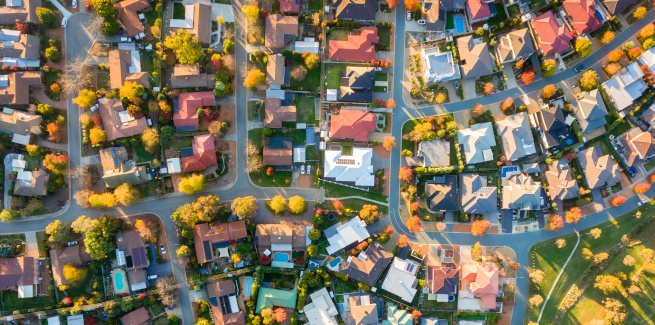According to the latest ANZ-Property Council research – which involved a survey of 955 property industry stakeholders between 15 June and 1 July – confidence in the outlook for the September quarter of 2020 improved from a record-low index of 55.7 (100 being neutral) in the June quarter, to 66.4.
This was driven by improvements in the outlook for residential construction, employment and forward work schedules.
ANZ senior economist Felicity Emmett attributed the improvement to the federal government’s rollout of the HomeBuilder program, with 60 per cent of respondents operating in the residential property sector expecting it to have a positive impact on their business.
However, Ms Emmett noted that the program would not be enough to be compensate for the impact of the COVID-19 crisis.
“While the program looks to have had a material impact on the outlook for a majority of businesses in the housing sector, it will not be a panacea for either the residential or overall property markets,” she said.
“And with the outlook still challenging, the economy is likely to need more stimulus in coming months.”
The ANZ economist added that despite the improvement, sentiment “remains depressed” off the back of lockdown measures imposed across the country.
Property Council of Australia CEO Ken Morrison warned that the improvement in confidence may be eroded by a second wave of lockdowns in Victoria, introduced after the survey was conducted.
“While there has been some improvement in sentiment where transmission is low and a positive response to the HomeBuilder stimulus, confidence in the economy remains low and the Victorian outbreak will have dealt further blows to this,” he said.
“Victoria’s economy accounts more than one-fifth of GDP and 40 per cent of economic growth last year and was our fastest-growing city in population terms.
“The consequences for national industry and business confidence from the Victorian lockdown are likely to be significant for the coming quarter and beyond.”
Mr Morrison said the federal government would need to consider how to soften the blow of a second wave of lockdown measures.
“While Australia has made better than expected progress in suppressing COVID-19, as shown by the lift in sentiment in those states and territories which have been able to ease restrictions, the risk of new outbreaks and the economic consequences of shutting down the economy will continue to be felt for some time,” he added.
“Decisions on the future of JobKeeper, along with other business support and economic stimulus measures, will be critical in rebuilding industry confidence and activity levels over coming months.”
The ANZ-Property Council survey also reported that the outlook for residential property prices slipped deeper into negative territory, from -35.6 index points in the June quarter to -49.1 index points for the September quarter.
This comes as the latest data from property research group CoreLogic revealed that national home values fell 0.7 per cent in June, following a 0.4 per cent decline in May.
Residential property prices were initially forecast to decline by up to 30 per cent; however, such forecasts have been revised amid an earlier than expected easing of lockdown restrictions.
AMP Capital chief economist Shane Oliver said he expects prices to decline by between 5-10 per cent throughout 2020 and into 2021.
[Related: Building activity waned ahead of COVID drag]
 ;
;
